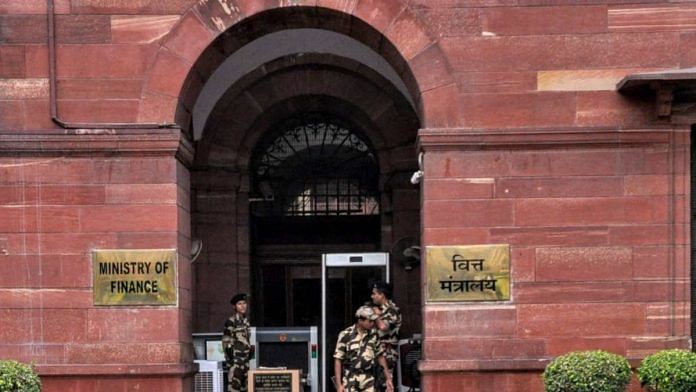New Delhi: Reduce share of loss-making businesses like group mediclaim and motor insurance, cut costs like travel and advertising by 20 per cent and pursue asset monetisation — these are some of the conditions attached to the Narendra Modi government’s capital infusion into three state-owned general insurance companies.
The finance ministry has issued a document listing key performance indicators on which the performance of these companies — Oriental Insurance Co. Ltd (OlCL), National Insurance Co. Ltd (NICL) and United India Insurance Co. Ltd (UIICL) — will be measured.
The move comes as part of the government efforts to make these loss-making firms profitable and ensure better capital utilisation.
According to the document, accessed by ThePrint, the insurance firms have been asked to desist from group health insurance schemes where the claims payout is more than the premiums earned.
They have also been asked to focus on property, liability and other lines of profitable business and reduce corresponding share of motor third party and group mediclaim coverage. The target given is to increase the profitable lines of business, or where the claims ratio is less than 70 per cent, by 25 per cent year-on-year.
The Modi government has also asked the firms to dispose of all grievances in two weeks of receiving them and ensure the first response within 72 hours. It has also asked them to curb the discounts offered for loss-making motor insurance businesses. The companies have also been asked to devise simple policies and claim forms besides building a repository for all grievances.
Other than employee costs, the insurance companies also have to bring down their costs like rent, travel, training, advertisement and publicity expenses, including printing of diaries and calendar, by 20 per cent.
The indicators are subject to monthly review, according to the document.
Also read: Imperative banks raise capital as pandemic could increase NPAs, says RBI’s Shaktikanta Das
The state of insurance companies
On Wednesday, the government announced a total capital infusion of Rs 12,450 crore into three general insurance companies — OlCL, NICL and UIICL. Of this, Rs 3,475 crore will be infused in the current financial year.
But along with the funds, the government also announced its intention to drop the merger of these three, which would have been followed by the listing of the merged entity on the stock exchanges.
These three firms have been registering losses over the last few quarters and the indicators are an attempt by the government to reduce the underwriting losses — or the losses incurred when the claims payout has been higher than the premiums received.
These companies have been aggressively quoting low premiums to capture group insurance businesses, which has impacted bottom lines, according to insurance brokers.
What the analysts say
K. Ramachandran, an industry expert who has worked in insurance broking and private sector general insurance firms, said motor third party and group mediclaim have been loss-making segments, more so for state-owned general insurance firms.
“Motor third party liability has been huge loss making segment and this is despite an increase in premiums. The amount of liabilities are quite significant. The frauds are also huge,” he said.
When it comes to group mediclaim, the per-person premium in group mediclaim policies is much lower than the rates of retail health insurance policies. Besides, group mediclaim policies allow for coverage of nearly all family members, he said.
On the feasibility of the state-owned companies reducing the share of these loss-making segments, Ramachandran said typically corporate insurances are interconnected portfolios. For instance, to get the fire insurance business of a company, the insurer may offer a group mediclaim policy at a substantially lower rate.
“If one insurer refuses, someone else may step in. This may lead to loss of the entire business offered by the company for the insurance firm,” he added.
Also read: Not ‘overworried’ about NPAs, no need for a blanket moratorium extension: SBI chairman




Good well balanced article not blaming BJP Government similar to what President Obama had to rescue AIG, one of world’s largest insurance company
Insurance cover to Private bus transport should be stopped. The private bus operators are habitual road accident offenders. The huge claims are manipulated in connivance
The unlimited TP claim can be curbed. Let everyone At least take an accident policy and the min can be z Janatha policy with 1 or 2 lakh cover.
Limit the claim to the policy coverage and thus the income can be augmented and claims contained.
The nexus of Advocate Insurance Co medico legal entities should be eliminated.